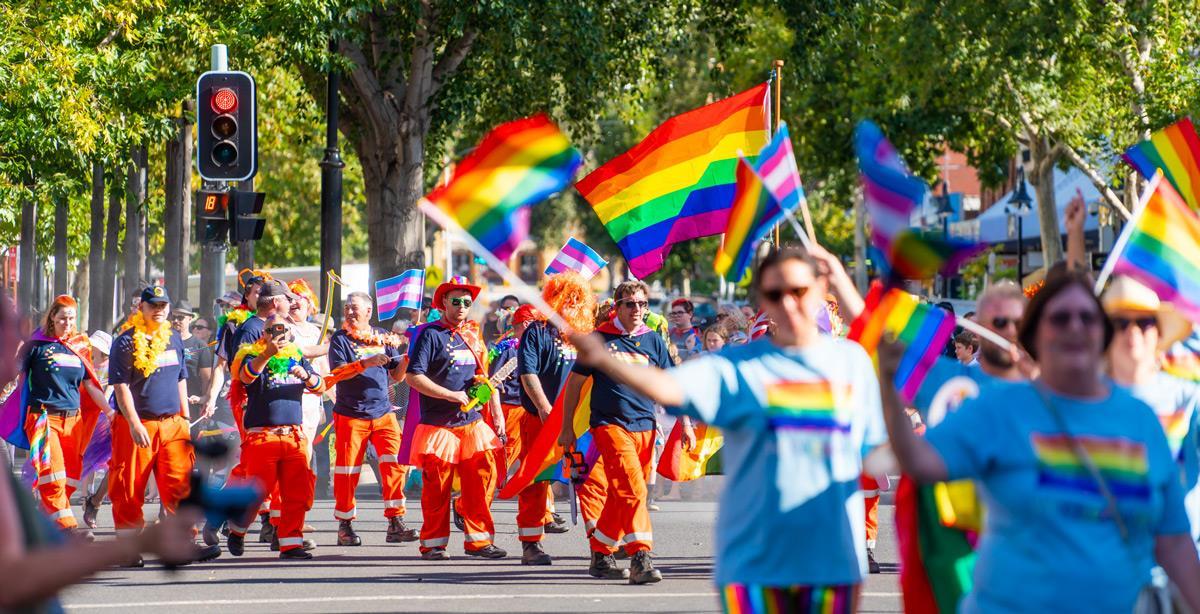
2 minute read
Event characteristics
What are events?
For the purposes of this strategy an ‘event’ has the following characteristics:
Can be one-off, held annually or occur regularly Open to the public and/or a specific interest group Has a pre-determined beginning and end date/s and time/s May be staged in a single venue or at multiple venues Can be conducted on a single day, over a number of days or weeks Subject matter focuses on one area/activity or a number of areas/activities Can be commercial or not-for-profit
The value of events
Events bring people together, contributing to wellbeing, strengthening cultural identity and harmony and make the city a more vibrant place to live. Events can also be a catalyst for infrastructure improvements and commercial investment. Hosting events builds the profile of Wagga Wagga, promoting the destination to potential visitors, creating business connections and can enhance perceptions of the city and region.
Events that are drivers of visitation can be an effective tool in reducing the impacts of seasonality for the tourism industry. Research shows that for 57% of first-time visitors to the region, the event was the main reason for visiting; likewise for 69% of repeat visitors. Source: TRA, Drivers of Regional Tourism 2014.
Some events may be more valued for their economic contribution to the city than for any social benefits and vice versa. For the purposes of this strategy, three main benefit streams associated with events have been defined:
Lifestyle and Legacy
Events create lasting social and cultural benefits, utilising existing assets and infrastructure, attracting new investment ensuring positive legacy for the city. Events make cities more vibrant and interesting places to live, connecting people and communities, giving them a sense of identity and place. Events also accelerate social development and trigger investment in legacy infrastructure or investment, i.e. upgrade a park to hold events.
These benefits cover a range of impacts, both short-term and long-term:
Facilitates participation, activation and engagement Develops local pride in place Inspires and supports emerging creative industries Fosters intercultural understanding, building social cohesion and community harmony Creates attractiveness and safety in public spaces Supports innovation, entrepreneurial energy and capability
Destination Reputation
Events grow the city’s reputation as an events destination by attracting national media attention, government and stakeholder recognition, and positive word of mouth recommendations, strengthening Wagga Wagga’s image as a great place to live, work, invest and visit. Hosting events has beneficial impacts on a city’s image and can be a cost-effective way of promoting the city’s brand to potential visitors, relocators and investors. Having a positive public image for both the destination and Council, assists not only with visitation, but also livability and the possibilities for entrepreneurial innovation.
Benefits include:
Strengthening the city’s reputation and brand as a regional, national and international visitor and events destination Assists in creating a positive image of Council among stakeholders and the community
Economic Benefit
Events increase the value of the visitor economy through overnight expenditure and the creation of employment opportunities for the local community. Tourism events can create economic benefit through overnight stays and visitor expenditure in tourism, hospitality and retail sectors. Event organisers procure local goods and services, contributing to a robust local economy.
Benefits include:
Driving visitation and economic activity Supporting local business involved in the delivery of events






